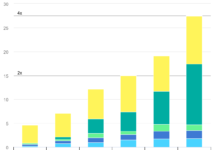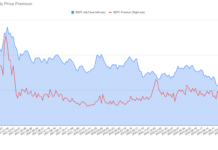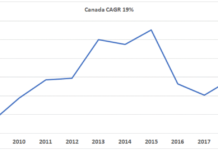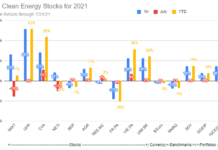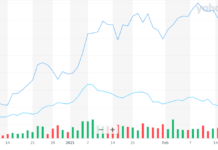by Kidela Capital Group
[ED Note: This ties in well with John Petersen’s article last week about Lithium-ion battery recycling. In both cases, it’s about price, and China’s actions are making Rare Earths expensive.]
Necessity is the mother of invention and Japanese industry is discovering just how true that old saying is. Last year, a diplomatic spat between Japan and China led the world’s largest supplier of Rare Earth Elements (REEs) to suspend exports of Rare Earth oxides and other critical metals to its largest single client.
Japan, like the rest of the world, is almost totally reliant on Chinese Rare Earth (RE) exports and the China’s action, which came as a shock to Japanese industry, is a sentient warning for the rest of the world. But just as Japanese industry parlayed the oil shortages of the 1970s into the development of a new world leading, fuel efficient automobile industry, Japan hopes to use this supply disruption as a catalyst to take the global lead in Rare Earth recycling.
There is some suggestion that Japanese industry anticipated supply interruptions and stockpiled Rare Earths and other critical metals as an ameliorative measure. This has muted the immediate impact of the short term shortages. Over the long term, Japanese industry has partnered with RE miners around the world to ensure a more reliable supply. But in the medium term, Japan is looking to cover shortfalls through improved technology and recycling.
Recycling proves expensive but profitable
Recycling is, however, extremely expensive. But, the irony of Chinese export restrictions is that it has driven up world RE prices to such an extent that alternate mining sources and recycling have become viable. To be feasible on a large scale, however, the price of REEs may have to rise even more than we have seen over the last year.
“It is very costly to collect and accumulate scrap for recycling. Merits of scale don’t work with these metals.”
The Japan Metal Economics Research Institute
The government of Japan has been instrumental in getting the recycling of REs underway and has both instituted subsidies and facilitated inter-industry cooperation. The Japanese Ministry of Trade has provided a third of a billion dollars in subsidies, which has been used as seed money for some 160 projects worth $1.34 billion. That number will increase as the Japanese government is offering another 8.9 billion yen in subsidies in the next fiscal year. The Japanese have set a goal of reducing the amount of REs imported by its domestic industry by one third.1
Japan is also investing heavily in research. Scientists at the University of Tokyo recently succeeded in separating REEs from neodymium magnets through a new, much cheaper recycling process. And a joint project by Morishita Jintan Company and Osaka Prefecture University has created a recycling process using microbes to recover rare metals such as palladium and indium. There is some hope it can be used for REs as well.2
Rare Earths from old air conditioners to computers
A number of noted Japanese companies have taken on different challenges in the recycling of REEs. Shin-Etsu Chemical is working on new systems to recycle these elements from old air-conditioners. The company is also negotiating contracts with electronic appliance suppliers to set up ways of recovering used and old appliances.3
Hitachi is recycling RE magnets from hard disk drive motors, air conditioners and compressors. Typically, recycling REEs was performed manually using acids and other chemicals, which created its own set of environmental issues. But Hitachi has recently announced a new “dry” process, which relies on a new extraction material with a high affinity for Rare Earths. Hitachi hopes to commence full recycling operations by 2013.4
Tokyo-based Showa Denko KK recently opened a plant in Vietnam to begin recycling dysprosium and didymium. The company, the world’s biggest producer of some components used in hard disk drives, makes 8,000 tons of Rare Earth alloys a year and has plans to output 800 tons at the recycling factory.5
Other companies have formed cooperative arrangements to take on the recycling test. Mitsubishi Materials has initiated recycling ventures with Panasonic Corp. and Sharp Corp., to examine the extraction of neodymium and dysprosium from washing machines and air conditioners.6
A revitalizing new industry
Dowa Holdings, one of Japan’s oldest mining companies, recently built a large recycling plant in Kosaka in order to extract REs and other critical and valuable metals from melted down electronics components. The company has been successful in reclaiming gold, indium and antimony and is hoping to soon have processes in place to capture neodymium and dysprosium.
Dowa is more open than many other few companies about its REE recycling processes. And its disclosures give some insight into the challenges facing recycling. Every day, Dowa’s plant at Kosaka takes 300 tonnes of recyclable materials that it sources from all over the world computer chips, cell phone speakers and other vital parts from electronics – crushes them, and then incinerates them in a furnace. From that, only 150 grams of Rare Earths are recovered. Despite this meager recovery rate, Dowa claims it still makes a profit.7
Right now, this recycling plant is also providing jobs for Kosaka, a town that has seen its metal processing business dry up in recent years. From a wider perspective, both industry and government see recycling as valuable new industry, one that Japan can exploit and one in which it can become a world leader.
“It’s about time Japan started paying more attention to recycling Rare Earths. If we can become a leader in this field, perhaps China will be the one coming to us to buy our technology.”
Utaro Sekiya, Manager, Dowa RE Recycling Plant
–
1 Japan seeks to cut rare earth usage by a third
2 Japan, Germany seek rare earth recycling as hedge
3, 6 New Push to Re
cycle Rare Earth Minerals
4 Hitachi Leads Rare Earth Recycling Efforts as China Cuts Access to Supply
5 New Push to Recycle Rare Earth Minerals
7 Japan Recycles Minerals from Used Electronics

